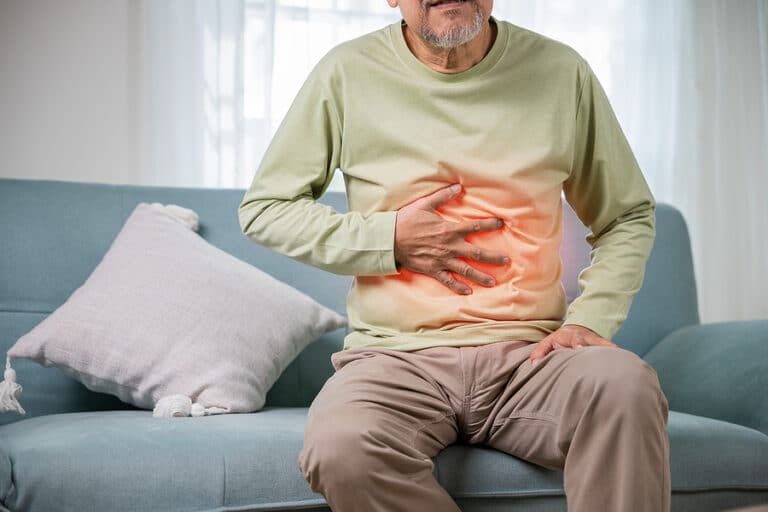Since ulcers often take years to develop, they are more common among the elderly than the young, especially if your senior has certain lifestyle habits that contribute to their growth. With proper personal care at home services, you can help prevent ulcers from becoming irritated and difficult to treat once they develop.
What is a Peptic Ulcer?
Peptic ulcers occur when acid begins to eat away at the organs through which food passes, often affecting the stomach and small intestine. This leads to painful open sores that can sometimes cause bleeding. Normally, the gastrointestinal tract is protected by a mucous lining, but with peptic ulcer disease, that protection breaks down, allowing ulcers to form. Most peptic ulcers develop in the stomach or duodenum, where gastric juices are most active.
For those managing peptic ulcers, personal care at home is essential—this includes maintaining a proper diet, managing stress, and following medical advice to promote healing and prevent complications.
Two Leading Causes of Ulcers
- Overusing NSAIDs (nonsteroidal anti-inflammatory drugs). NSAIDs include over-the-counter pain-relieving medications such as ibuprofen and aspirin. Many elderly people with chronic pain rely on these medications to help them manage their daily pain levels, but for some, the overuse of them can negatively affect the chemistry of the stomach and duodenum by inhibiting the prostaglandins, which are responsible for repairing damage to the gastrointestinal lining.
- The H. pylori bacterial infection. This common bacteria lives in many people’s stomachs and doesn’t cause any harm, but in some people, it starts to overgrow and affects the balance needed for a healthy gut, leading to peptic ulcers.
Lifestyle Habits That Make Ulcers Worse
While these items don’t cause ulcers or peptic ulcer disease on their own, frequent use of NSAIDs can increase the risk of developing an ulcer or worsen an existing one, making it harder to treat and heal. With proper personal care at home, managing medications and monitoring symptoms can help reduce these risks and support recovery.
- Stress: Untreated stress can lead to increased digestive issues, with excessive acid building up. It also reduces a body’s ability to repair damage that has already occurred.
- Spicy and acidic foods: These may make the pain from ulcers more intense.
- Smoking: Smoking increases the risk of peptic ulcers in people who are infected with H. pylori bacteria.
- Drinking alcohol: Alcohol increases stomach acid and can irritate and erode the mucous lining of the stomach.
Making Lifestyle Changes with the Help of a Personal Care at Home Provider
If your loved one has had a history of ulcers, his doctor will probably recommend some changes in his habits to help prevent new ones from developing as well as to help speed up the recovery of any he may have. In addition to medications his doctor may provide, his doctor may want him to strive to reduce the stress in his life and avoid certain foods that seem to be triggers.
A personal care at home provider can work with your loved one to develop a meal plan that doesn’t trigger or irritate his ulcers by helping him find the right foods at the grocery store and helping him prepare meals for each week. For many elderly men who have not had a lot of lifetime experience creating healthy meals, a personal care at home provider can be just the help they need to learn how to eat better and achieve better gut health.
If you or an aging loved one is considering Personal Care at Home in Riverview, FL, please contact the caring staff at Family First Healthcare Services today at (813) 461-8000.
Family First Healthcare Services is a top provider of in-home health services in Tampa, Bradenton, Brandon, Riverview, Lakeland, Winter Haven, Haines City, Lakewood Ranch, Palmetto, Town ‘n’ Country, Florida, and surrounding areas.
- Fun Brain Games Seniors Can Do At Home - May 23, 2025
- Three Types of Vision Loss in Seniors - May 7, 2025
- Managing Osteoarthritis with Physical Therapy - April 28, 2025


